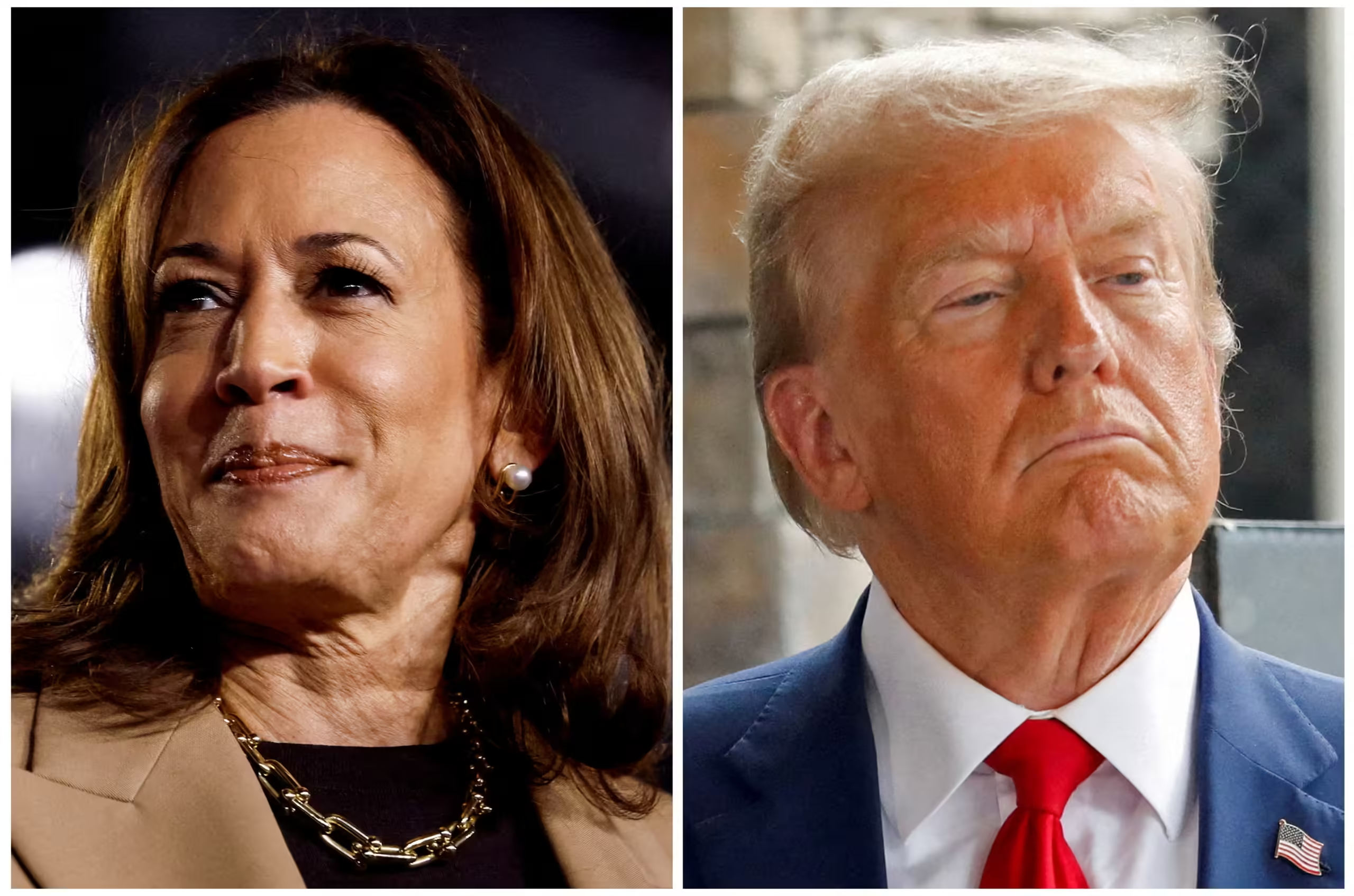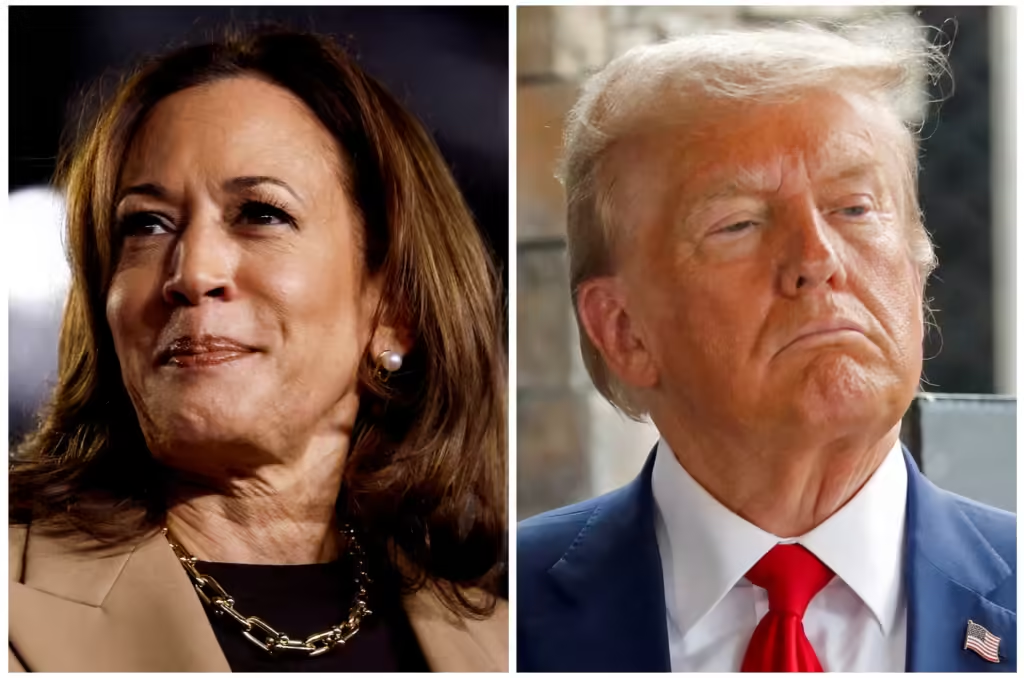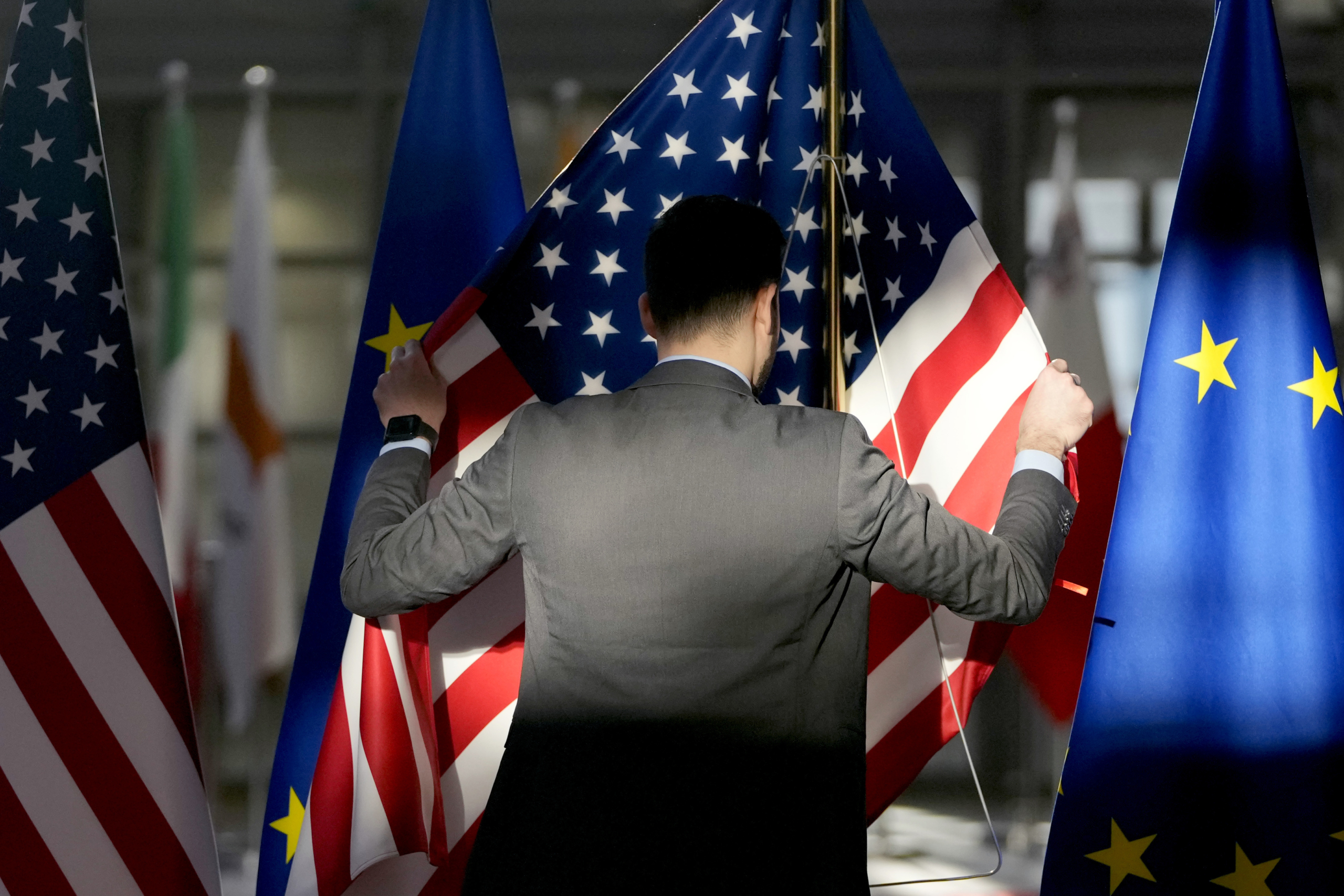The current U.S. election has raised alarms across Europe, sparking worries not just about American policies but about the very future of Europe itself. Nathalie Tocci, an Italian political analyst, sums up the mood after her recent visit to Washington, D.C.: “The level of anxiety about the presidential election is sky high… Almost as high as it is in Europe.” For European policymakers and citizens alike, a Trump victory or a Kamala Harris win would both bring seismic shifts, but in very different ways. Here’s how the U.S. election could impact Europe, touching on everything from security and economy to democracy.
It’s not just Democrats who fear a Trump victory – it would be a disaster for Europe too
Economic Turmoil and the Threat of Trade Wars
Europe’s primary concern is the economy, especially with Donald Trump’s return to office looking like it could spark a new wave of tariff wars. As Tocci points out, European leaders fear Trump’s aggressive stance on tariffs. “Most European planning has gone into the potential impact on the economy,” she writes, suggesting that the EU has already braced itself for a hostile trade environment if Trump wins. They are prepared for “a mix of generous offers at the negotiating table, followed by retaliatory measures were these to fail.”
However, Europe’s worries don’t end with the potential clash with the U.S. Europe is also engaged in an economic standoff with China, creating the risk of a three-way trade war. Tocci highlights this delicate balance: “If the U.S. did ramp up tariffs on the EU, how would European countries manage this against the backdrop of an already escalating EU trade war against China?” Even more concerning is the possibility of U.S.-imposed secondary sanctions on EU products with Chinese technology components, something that could severely disrupt European economies.
In contrast, a Harris administration is expected to take a less confrontational approach. However, European leaders might still feel the impact of U.S. trade policies. As Tocci remarks, Europeans seem to lazily assume “that Joe Biden’s (mildly protectionist) approach to trade, investment and industry would continue” under Harris. But this assumption may be a miscalculation, as European leaders learned with Biden’s 2022 Inflation Reduction Act, which unexpectedly pulled green investment towards the U.S., jeopardizing Europe’s climate efforts.

Security Risks: NATO, Ukraine, and European Autonomy
Security is arguably the most pressing issue for European leaders, who fear the implications of a Trump presidency on NATO and Ukraine. Tocci underscores Europe’s anxiety here: “Few of us believe that the U.S. would actually pull out of NATO under a second Trump term… but few of us doubt that Washington would abandon Ukraine.” The concern is that Trump, who has voiced skepticism about NATO, might broker a peace deal with Russia, leaving Ukraine—and Europe—at risk. Such a move would likely lead to fractures within Europe, with some countries refusing to bow to a “stitch-up that would allow Vladimir Putin to prepare to take his next gulp of European territory,” Tocci warns.
If Trump’s victory comes to pass, the EU might finally push toward a more cohesive defense policy, long championed by French President Emmanuel Macron as “European strategic autonomy.” While Macron has advocated for this vision for years, Trump’s re-election could finally give it momentum. Yet, as Tocci points out, “a Trump presidency would make Europeans much more willing to pull together on defense but less likely to succeed with a hostile administration across the Atlantic.”
On the other hand, a Harris presidency, while unlikely to involve an abrupt disengagement from Ukraine or NATO, would probably initiate a more subtle U.S. pullback from European security matters. This presents a catch-22: while a Harris administration would be supportive, Europe might lack the urgency to move toward an integrated defense strategy without the imminent threat of Trump’s policies.
The State of European Democracy at Stake
Europe’s democratic stability is also in question, with Tocci suggesting that a Trump victory could energize Europe’s nationalist-populist movements, already riding a second wave across the continent. “Europe today is on its second, arguably much larger, nationalist-populist wave,” she notes, pointing to recent elections across Europe that have strengthened far-right ideologies. Trump’s re-election would likely “accelerate the ‘Orbánisation’ of Europe,” as populist leaders across the continent might feel empowered to pursue policies that undermine democratic norms. Leaders in countries such as Hungary, Slovakia, and Italy could push harder for restrictive measures on LGBTQ+ rights, immigration, and judicial independence, much like Hungarian Prime Minister Viktor Orbán has done.
In contrast, a Harris presidency could have the opposite effect, offering a boost to Europe’s liberal democratic forces. Harris’s “emphasis on freedom, the separation of powers, and civil rights,” Tocci believes, could galvanize liberal democrats and even shift Europe’s political tides away from nationalism. Countries like Hungary and Italy might find it more challenging to implement conservative reforms, especially with backing from a like-minded U.S. administration under Harris.

The Urgent Choice for Europe
The outcome of the 2024 U.S. election will undoubtedly send shockwaves through Europe. While Trump’s victory could upend Europe’s economy, security, and democratic values, Harris’s win would require Europe to re-evaluate its assumptions and make real preparations for both continuity and change. For Europe, the U.S. election represents more than just a change in leadership; it’s a turning point that will shape the continent’s future.

